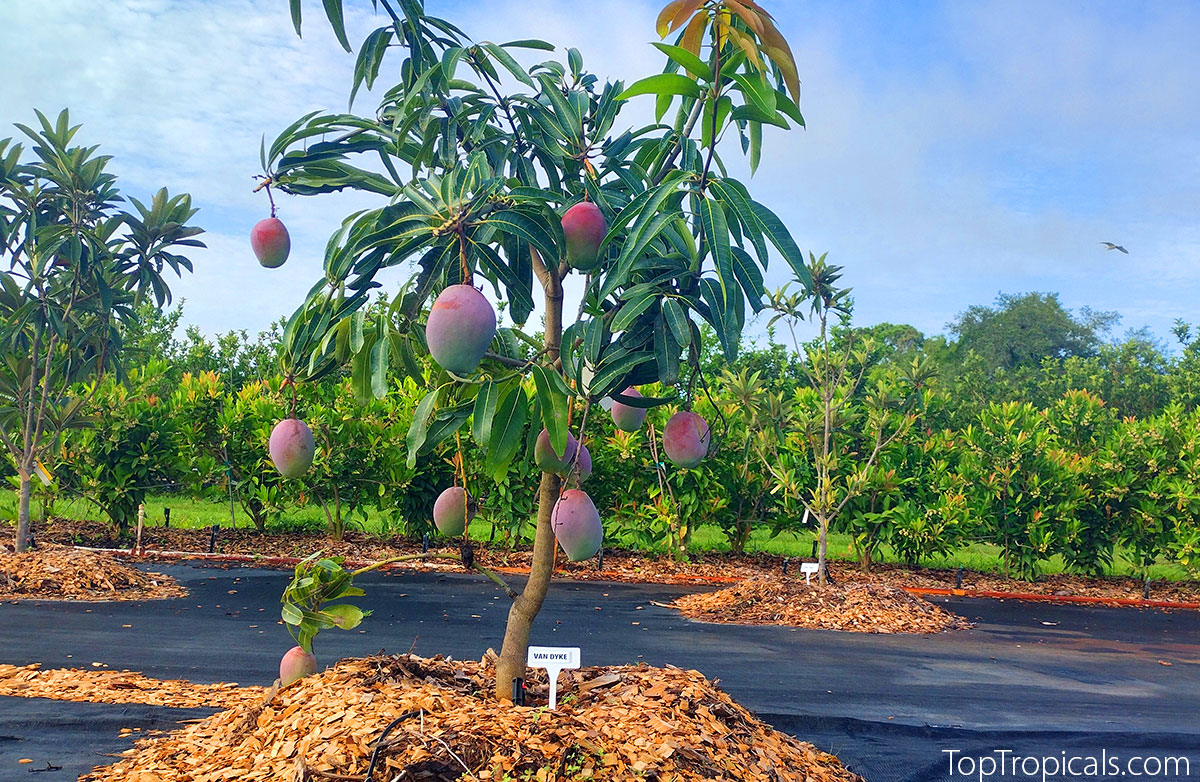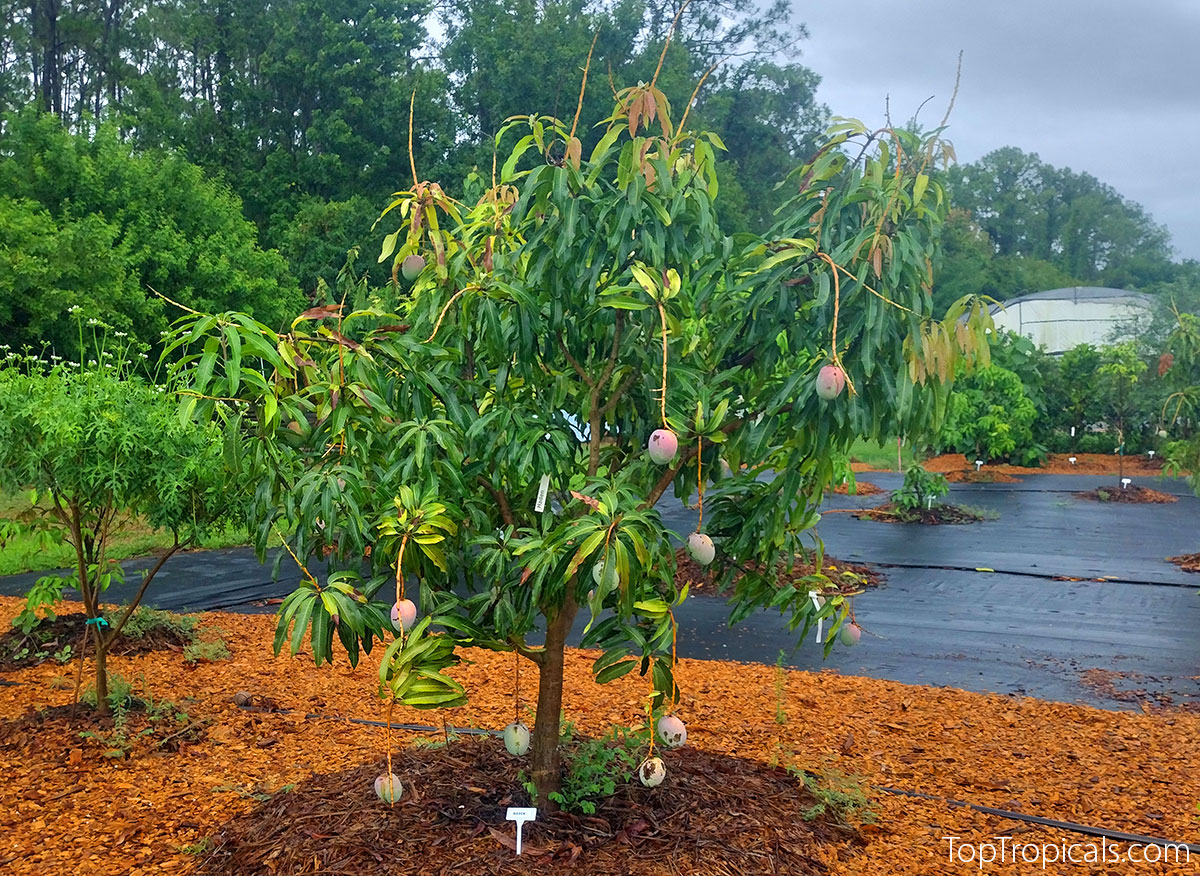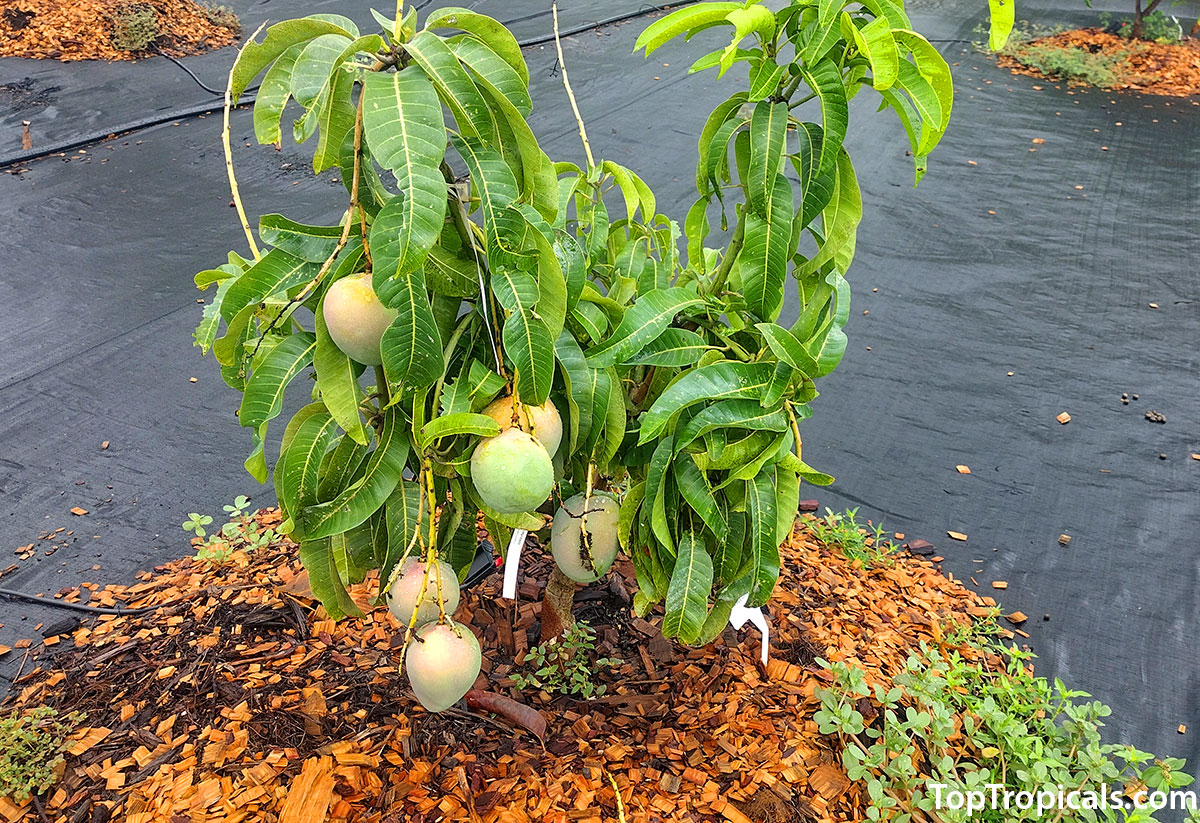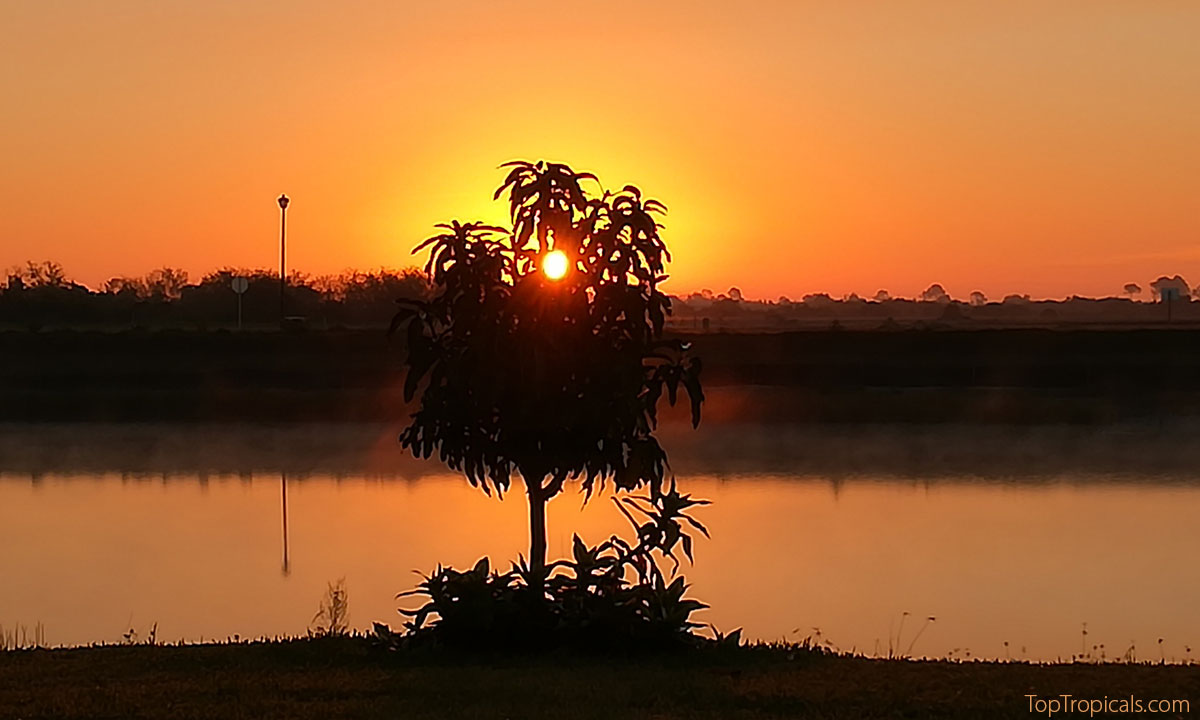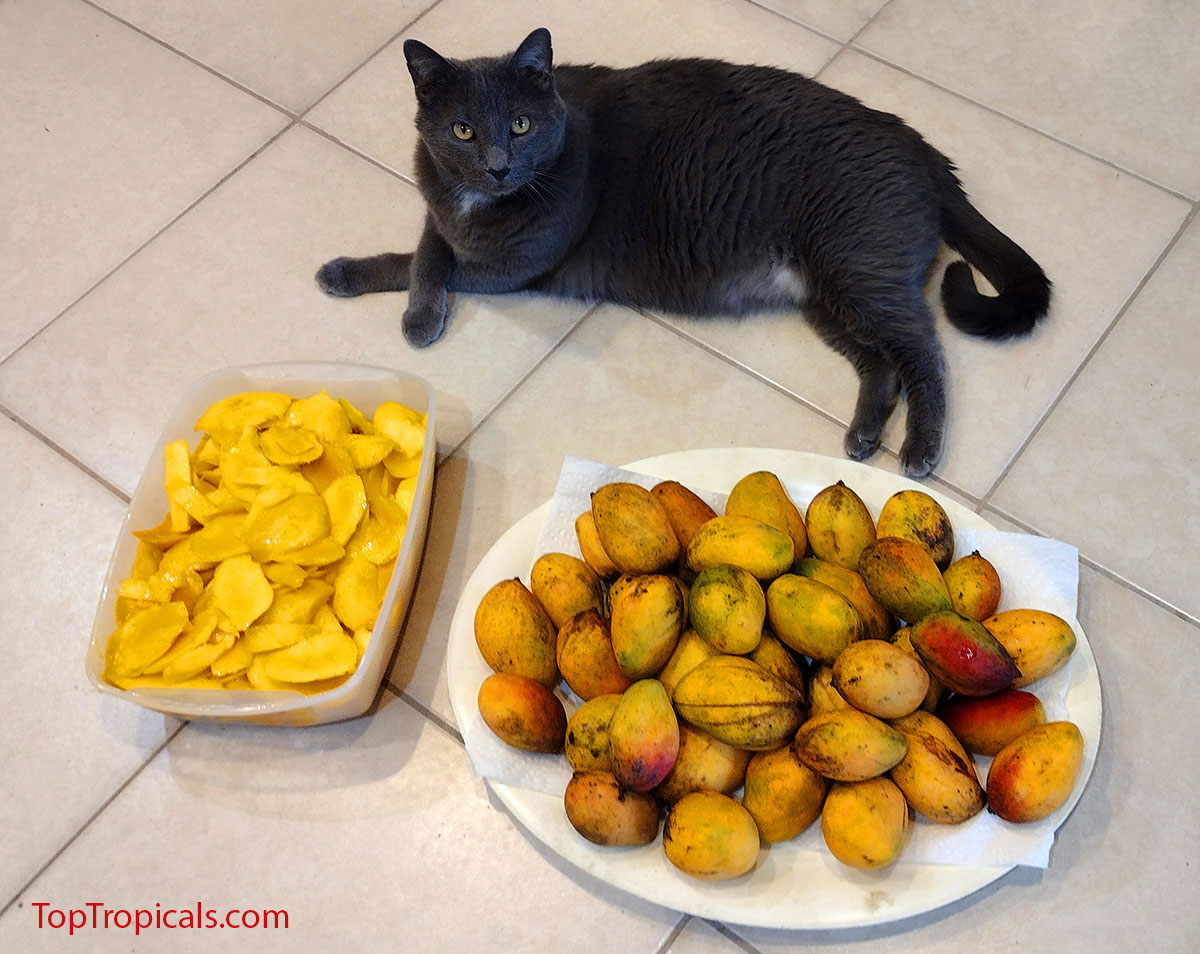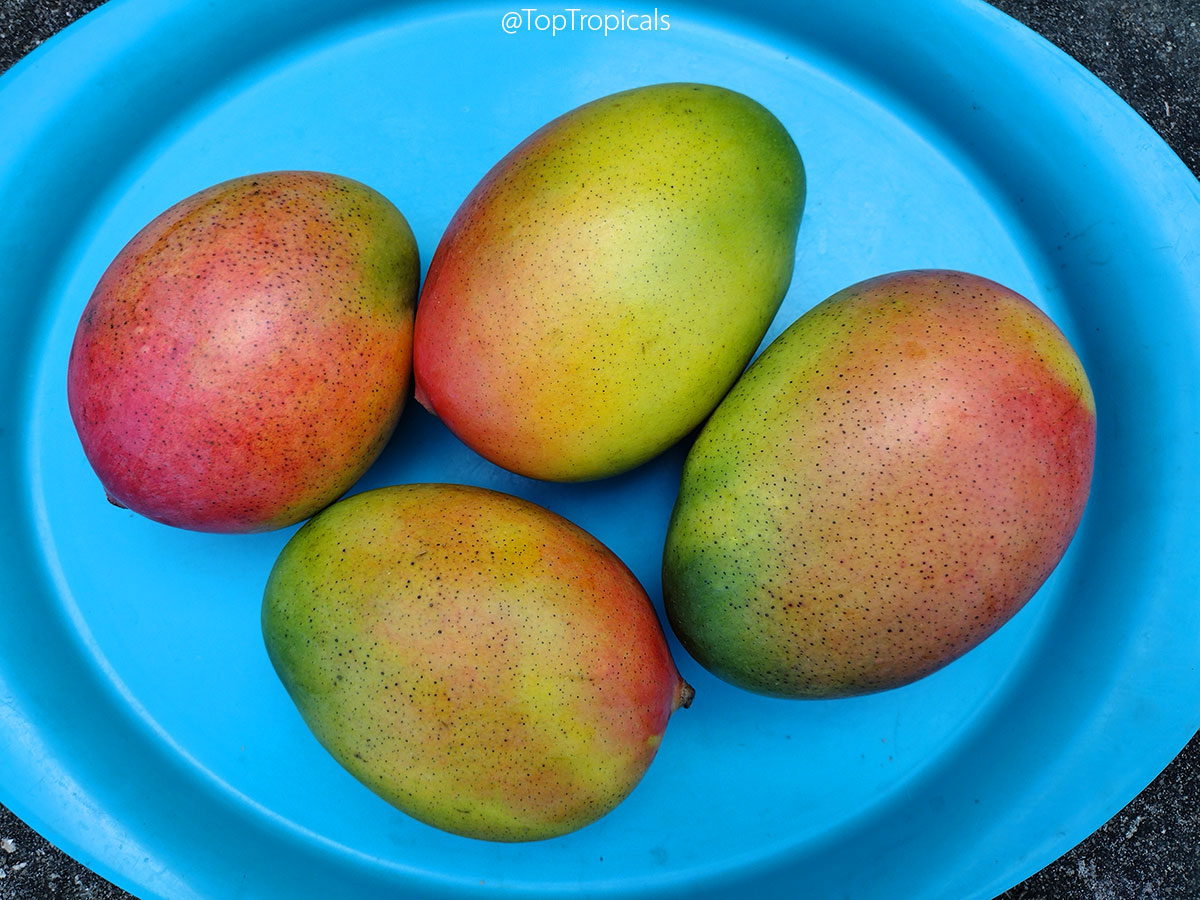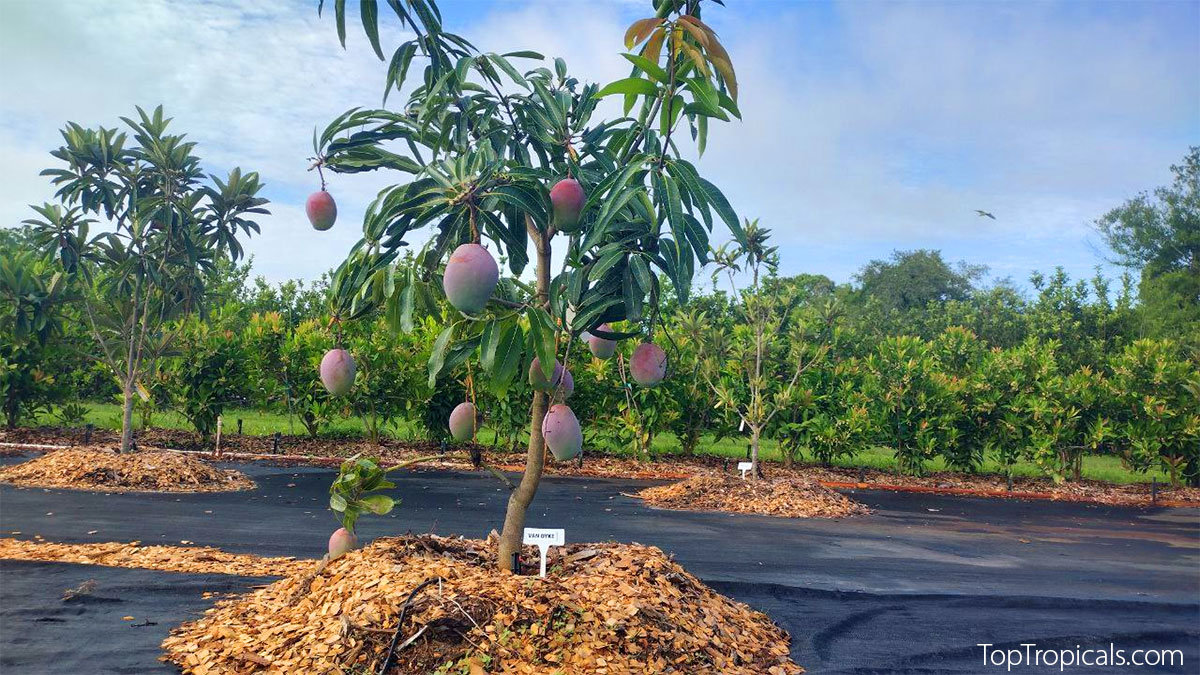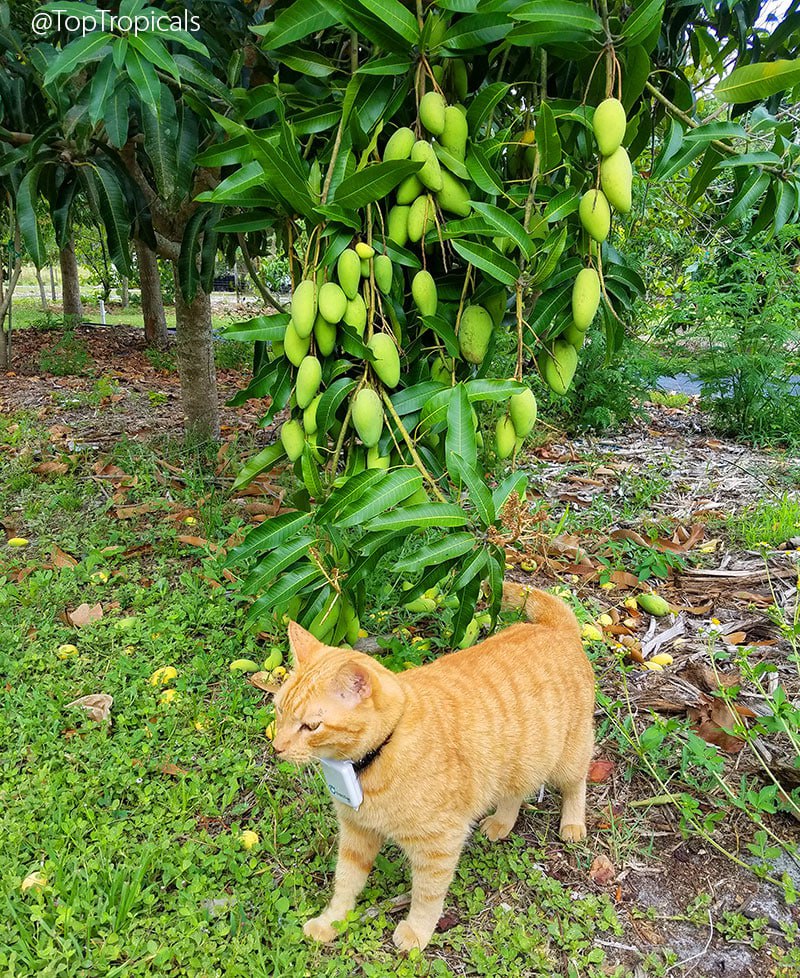What are the Condo Mangos?
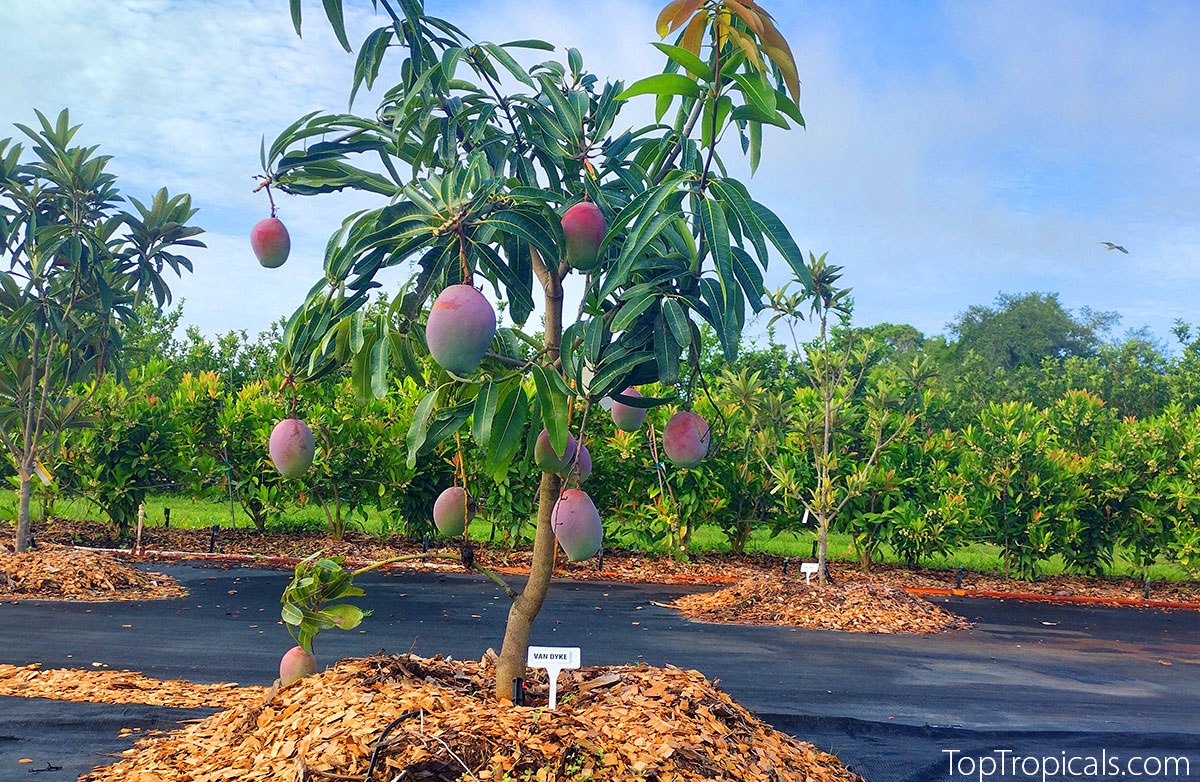
Mango tree with fruit
- 🟠 What Are Condo Mangos?
- 🟠 The term “Condo Mango”
Condo Mangos, also known as dwarf mango trees, are perfect for small spaces. These trees can be grown in containers, making them ideal for balconies, greenhouses, or small suburban backyards. With proper care, they can be maintained at a manageable height of 6–10 feet through regular pruning. Some plant enthusiasts even manage growing Mango tree as an indoor plant!
“Condo Mango” refers to mango varieties that thrive in containers and are small by nature, allowing them to be easily kept even smaller with selective pruning.
- 🟠 Size and Growth
- 🟠 Growing in Containers
Unlike traditional mango trees, Condo Mangos are compact. They naturally grow to around 6-10 feet, but with proper pruning, they can be kept small, making them an excellent choice for limited space.
· Condo Mango trees thrive in pots and containers.
- · A 15-20 gallon pot is ideal to give the roots enough room to grow.
- · Ensure your container has drainage holes to prevent root rot.
- 🟠 Planting Tips
· Plant Condo Mangos in full sun, where they’ll get plenty of heat and light.
- · Use well-draining soil for optimal growth.
- · Fertilizer regularly with quality plant food. Out best choice is Sunshine Mango Tango for edibles.
- · Late Winter to early Spring is the best time to plant in containers, before the rainy season starts.
- · Mangoes grow well in USDA zones 9-10, but if you live in cooler climates, you can grow them indoors or in a greenhouse, as long as you meet their heat and light needs.
🟠 Pruning and Maintenance
- · Prune Condo Mango trees once a year to keep them at the desired height (6–10 feet), right after harvesting (late Summer to Fall)
- · Trim the tips of the branches to maintain a compact shape and encourage healthy growth.
- · Regular pruning will help keep the tree manageable and ensure better fruit production.
- 📝 See most popular Condo Mango varieties in the next post 👇
🛒 Shop Condo Mango
📝 Earlier posts on #Mango:
- 🔸 Mango rainbow: What's the taste of that mango variety?
- 🔸 5 most Favorite Mango Varieties
- 🔸 Top 10 Dwarf "Condo" Mango
- 🔸 Top 5 vigorous growers and reliable producers
- 🔸 Top 5 exotic Mango varieties for rare fruit collection
- 🔸 How to grow a mango tree
- 🔸 How to protect mango fruit from rodents
#Food_Forest #Mango
🔴 Join 👉 TopTropicals
